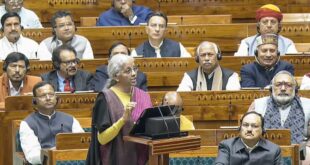Jubilee news desk
The United Nations climate body and UK government have decided that, due to the COVID-19 crisis, the 2020 COP26 climate summit is postponed until 2021. The decision was taken at a virtual UN ‘bureau’ meeting late on Wednesday 1 April, attended by UN climate chief Patricia Espinosa and representatives from the main UN regional blocs.
COP26 was set to run from November 9-18 in Glasgow, Scotland. It’s likely it will now take place in the middle of 2021, although a date has not been agreed. Other UN climate meetings that were due to run in June 2020 will now take place in October 2020 in Bonn.
The UK – which is also set to host the G7 in 2021 – had come under increasing pressure to make a decision about COP26 in recent weeks as the pandemic intensified. This week the Scottish government announced that the SEC Arena – where COP26 is due to take place – will be turned into a field hospital to cope with COVID-19 cases.
News of COP26’s postponement comes as greenhouse gas emissions continue to rise to dangerous levels, with impacts from climate-related extreme weather events hitting across the globe. Last week scientists in Australia reported a third mass coral bleaching event at the Green Barrier Reef in five years, while another study predicted the Amazon rainforest could collapse by mid-century.

Under the Paris Agreement, struck in 2015, governments made a political commitment to deliver new climate plans this year. This requirement still stands, but focus is now turning to the multi-trillion stimulus packages governments are preparing to reboot their economies as the pandemic subsides, and the extent to which these deliver a healthier, cleaner and resilient planet.
Director General of TERI – The Energy and Resource Institute Dr. Ajay Mathur said -“The momentum for climate action has accelerated considerably, and we will have to ensure that this momentum is sustained even as CoP26 is moved to 2021. However, this postponement was the right decision – it highlights the centrality of the individual citizens of the world, and of their safety, security, and wellbeing. We need to keep this centrality in mind as we move to maintain and enhance momentum on climate action, while building a safer, healthier and more resilient global economy.”
 Jubilee Post News & Views
Jubilee Post News & Views





